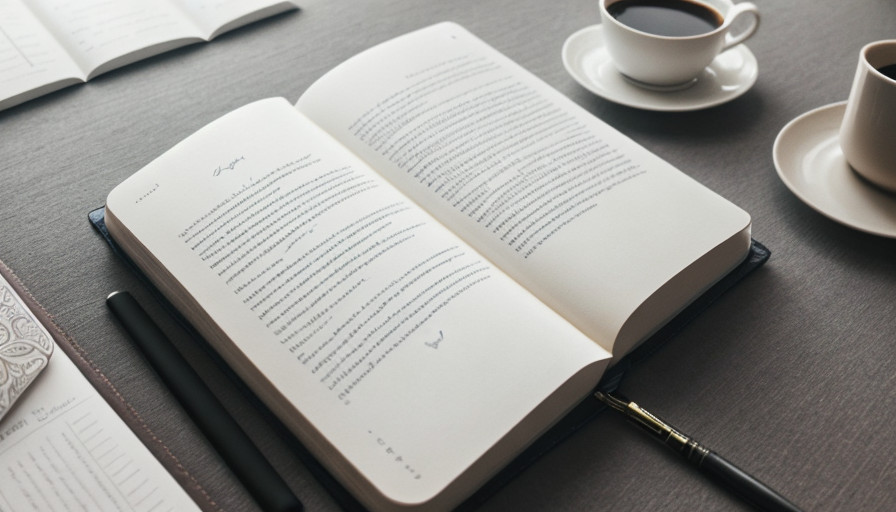
Have you ever taken a moment to truly understand yourself? It’s not always an easy task. Reflecting on who we are can be a bit like looking in a mirror that reveals both our strengths and weaknesses. This self-examination is an essential part of personal growth, even though it can sometimes be uncomfortable. It involves holding ourselves accountable and acknowledging areas where we can improve. At times, it might seem tempting to ignore these aspects of ourselves, but self-reflection is the key to a deeper understanding and self-improvement.
The Essence of Self-Reflection
Self-reflection is a deliberate and mindful process of introspection that involves examining one’s own thoughts, emotions, behaviors, and experiences. This practice helps enhance self-awareness and personal growth. It’s not something that happens automatically; it’s a choice you make.
Through self-reflection, you can gain insights into your behaviors, motivations, and aspirations. Imagine it as peeling back the layers of your personality to understand what drives you. Self-reflection can lead to a deepened self-understanding, improved decision-making, and personal development. Anyone can practice it, and it doesn’t require special tools or technology; it’s all about the willingness to explore your inner thoughts and experiences.
The Importance of Self-Reflection
Why is self-reflection so vital for personal growth and development? It’s because it serves as a pathway to self-awareness, a cornerstone of personal transformation. Here are a few reasons why self-reflection is invaluable:
- Self-Awareness: Self-reflection is like turning on the light in a dark room. It helps you become aware of your thoughts, emotions, and behaviors. This heightened self-awareness is the foundation of personal growth because you can’t change what you’re not aware of.
- Improved Decision-Making: Understanding yourself better enables you to make wise decisions. You can align your choices with your values, needs, and long-term goals, resulting in better life outcomes.
- Stress Management: Knowing your stress triggers and how you react to them is crucial for effective stress management. Self-reflection empowers you to develop coping strategies and maintain your mental well-being.
- Self-Improvement: It’s impossible to grow and evolve without understanding where you need improvement. Self-reflection helps you pinpoint areas for growth, whether it’s in your skills, behaviors, or habits.
- Emotional Intelligence: Self-reflection enhances emotional intelligence, which is the ability to recognize, understand, and manage your own emotions, as well as the emotions of others. This skill is invaluable in both personal and professional settings.
- Adaptation and Resilience: When you understand your strengths and weaknesses, you become more adaptable and strong in the face of challenges. Self-reflection prepares you to recover from setbacks.
Techniques for Effective Self-Reflection
Think of self-reflection as your personal adventure. It’s a journey that can help you grow as an individual and become more in touch with your own thoughts and emotions. To make the process of self-reflection smoother, we’ll explore some simple techniques that can assist you in gaining a better understanding of yourself and the world around you.

- Journaling: One of the most accessible and effective methods is keeping a journal. Write down your thoughts, feelings, and experiences regularly. This practice can help you track your emotional patterns and gain insights into your reactions.
- Meditation and Mindfulness: Dedicate some time each day to meditation or mindfulness exercises. This involves focusing on your breath, letting thoughts flow, and observing them without judgment. It can increase your self-awareness.
- Asking Yourself Questions: Challenge yourself with thought-provoking questions like “What makes me happy?” “What are my strengths and weaknesses?” “Where do I see myself in five years?” Honest answers can provide insights into your inner world or inner self.
- Seek Feedback: Don’t hesitate to ask for feedback from friends, family, or mentors. They can provide a different perspective on your strengths and areas that need improvement.
- Reviewing Your Goals: Periodically review your short-term and long-term goals. Are you still on the right path? Are your goals still relevant to your evolving self?
- Expressing Yourself Creatively: For those inclined to the arts, consider expressing your thoughts and feelings through painting, writing, or other creative outlets. It’s a different way to explore your inner world.
- Silent Retreats: Consider participating in a silent retreat or spending a day in solitude. The absence of external distractions can deepen your self-reflection.
- Gratitude Journal: Dedicate a journal solely to the things you’re grateful for. Reflecting on your blessings can provide a positive perspective on your life.
- Reflecting on Past Experiences: Analyze your past experiences, both positive and negative. What have you learned from them? How have they shaped you?
Each of these techniques offers a unique approach to self-reflection. You can choose the methods that resonate with you the most, or even combine several of them to create a personalized approach that suits your needs and preferences. Remember, self-reflection is a personal journey, and the key is to make it a consistent part of your life.
When Self-Reflection Becomes Harmful
While self-reflection can be a helpful way to learn about your inner-self, it’s essential to recognize when it can go wrong. For example, if you’re constantly too critical of yourself, it can lead to self-doubt and lower self-esteem. Thinking too much about past mistakes can make you worry all the time and even become anxious or depressed. When self-reflection becomes self-centered and you think only about yourself and not others, it can harm your relationships and make you feel isolated.
Sometimes, if you’re a perfectionist and always trying to be flawless, self-reflection can make you stressed and exhausted. And when self-reflection takes up too much of your time and prevents you from doing your daily tasks, it can make your life less enjoyable. Striking a balance in self-reflection is crucial so that it remains a positive force for personal growth. If self-reflection is causing problems, seeking advice from friends, family, or professionals can help you find a healthier approach and feel better.
A Few Self-Reflection Questions
Engaging in self-reflection often begins with asking yourself thoughtful questions. These questions can guide your introspection and help you gain a better understanding of your inner thoughts and emotions. Here are a few simple questions to get you started:
- What truly makes me happy?
- Am I managing my stress effectively?
- What are my key strengths and weaknesses?
- How well do I understand my own thoughts and emotions?
- Am I staying in my comfort zone too often?
- What changes can I make for personal growth?
- Do my daily actions align with my core values?
- How am I taking care of my mental health?
- What are my most significant life goals?
- What steps can I take to improve my relationships?
Is Meditation Effective for Self-Reflection?
Meditation is widely recognized as an effective tool for self-reflection, and it has earned this reputation for good reasons. When you engage in meditation, you create a peaceful environment to turn your focus inward, becoming more in tune with your thoughts and emotions. This practice serves as a pathway to gaining clarity into your inner world.
During meditation, your mind naturally settles, and your thoughts tend to organize themselves. It’s a peaceful moment when you can explore your feelings, thoughts, and experiences without any critical judgments.
However, it’s essential to acknowledge that the effectiveness of meditation for self-reflection can vary from person to person. While some individuals find it to be a powerful method for enhancing self-awareness and understanding, others may lean toward alternative approaches, such as journaling or engaging in introspective conversations. The key is to discover what works best for you and your unique journey of self-reflection and personal growth.
Final Thoughts
As we conclude our discussion on self-reflection, it’s important to note that this practice is an ongoing process rather than a final stop. Self-reflection is a lifelong journey that acts as a mirror, continually reflecting your evolving self and guiding you towards a more enlightened and meaningful life. So, let your self-reflection journey be an ongoing story, consistently revealing new layers of your genuine self and paving the path to a more fulfilling life.

